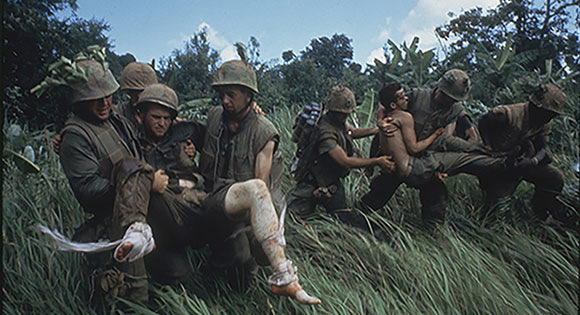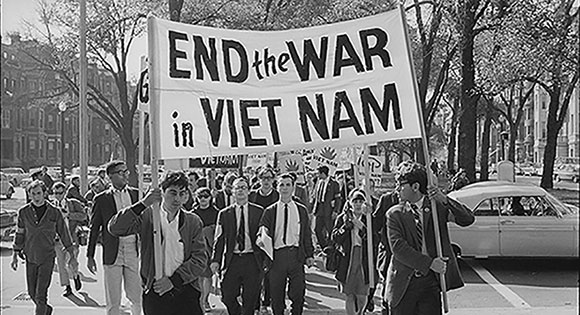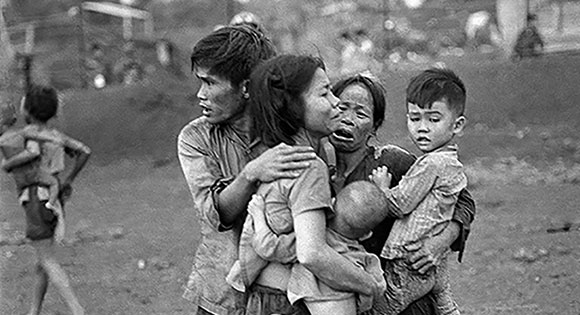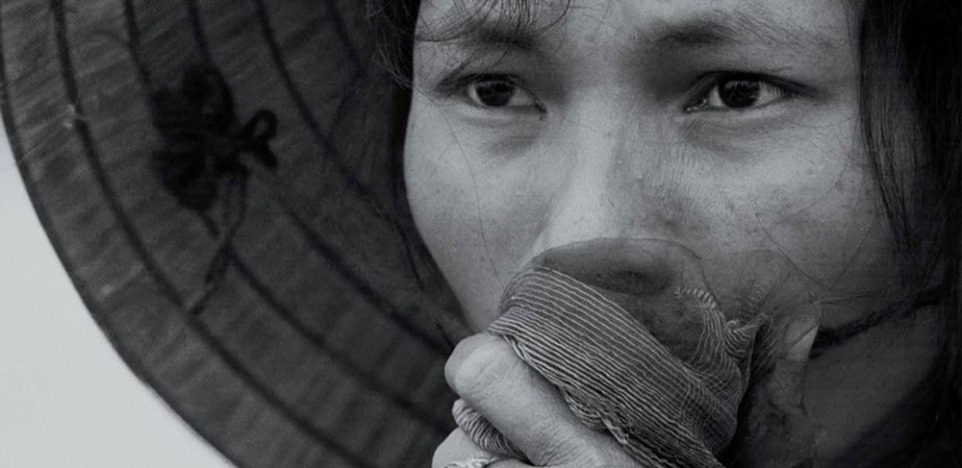Ken Burns and Lynn Novak have made a riveting 18-hour, 10-part documentary about one of the most traumatic, convulsive, and divisive events in American history. Broadcast beginning in October on public television in the U.S., it is also available as a 10 DVD set from PBS.
Like the Civil War a century earlier, the Vietnam War split the nation into warring ideological camps. Battle lines were drawn between "hawks," who believed that American involvement in Southeast Asia was needed to stop the spread of Communism, and "doves," who maintained that intervention in a foreign land was not in the best interests of the nation.
The Vietnam War was a brutal, ugly, and protracted struggle which tested the identity and the ideals of those who fought and those at home. When it was finally over and the Americans left Vietnam in defeat, a stunned and exhausted public welcomed the chance to put the whole experience in the back of their minds.

But today, the Vietnam War is still with us. It gave its name to an entire generation. Close to three million Americans fought there, almost 10% of their generation. In the words of Vietnam vet Robert Muller: "It was the most significant experience in (our) lives. And it stands as the most significant experience of an entire generation."
Of the 26.8 million men who were eligible for service during the war period, 15.4 million were deferred, exempted or disqualified. Of those who served, 2.1 million were deployed to Vietnam. More than 58,000 died, 300,000 were wounded, and 245,000 have filed for injuries brought on by exposure to the defoliant weapon Agent Orange. More than 50,000 draft-age men fled to Canada and Sweden. And those are just the statistics from the American side.
And its impact persists. In an Op-Ed in The New York Times, Ken Burns and Lynn Novick explain why after 40 years, Americans have not been able to put it behind them:
"Instead of forging a path to reconciliation, we have allowed the wounds the war inflicted on our nation, our politics and our families to fester. The troubles that trouble us today – alienation, resentment and cynicism; mistrust of our government and one another; breakdown of civil discourse and civic institutions; conflicts over ethnicity and class; lack of accountability in powerful institutions – so many of these seeds were sown during the Vietnam War."

In their documentary, Burns and Novick uncover the beginnings of these tensions while also giving us an up-front and very personal account of the impact of the conflict on Americans and on the Vietnamese. Six years in the making, it features 80 witnesses who were there -- Americans who fought, Vietnamese combatants, and civilians from both sides. Their stories are interspersed with archival footage, including scenes from of the battles and events they were directly involved in. Other segments capture and convey the chaos of war and the dreadful destruction brought to Vietnam by the use Agent Orange, napalm, and other toxic substances which destroyed plants, animals, trees, and anything in their path.
The directors use an amazing variety of material to convey the history of Vietnam from the late 1800s through the French occupation in the 1900s (episode one), to American involvement during the Kennedy Administration (episode two), followed by year-by-year reporting on the war during the Johnson and Nixon administrations. They mix photographs, historical television broadcasts, home movies, and audio recordings of the presidents talking with the generals. We also hear from families of those fighting, both in the U.S. and in Vietnam, and from those who protested the war. Equally impressive is the emotionally enriching use of more than 120 songs by Bob Dylan, Joan Baez, Janis Joplin, Wilson Pickett, Buffalo Springfield, the Byrds, the Rolling Stones, and the Beatles.

The Vietnam War has a "you-are-there" quality that is both startling and disturbing. As we heard about one bad decision after another, we could not help but sympathize with the Vietnamese people who suffered from foreign occupation and interference over the course of a century. We found ourselves saying, "What? We didn't know that was when it started," only to hear from the narrator (Peter Coyote) that decisions were made to keep certain activities secret from the American people.
This series is packed with information, detailed policy explanations, and vivid scenes of military action. At times, it feels overwhelming. But this is important viewing, not only for Americans but for people everywhere who persist in thinking that war can be stopped by war. Watch it and weep.
